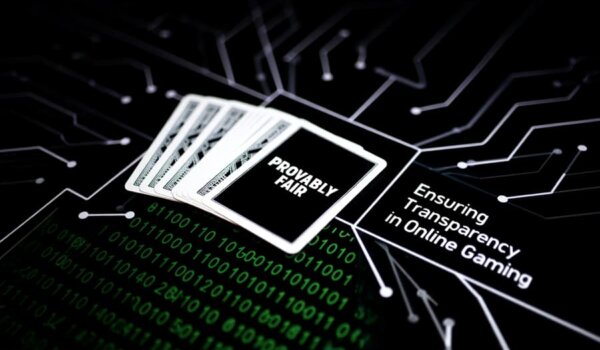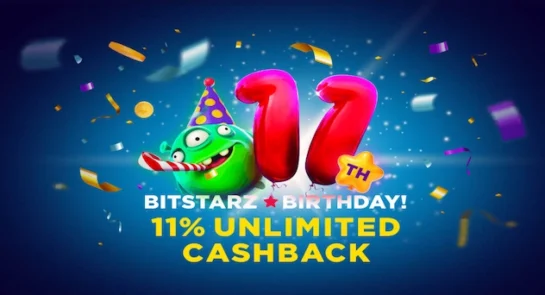Provably Fair Gambling: Everything You Need to Know in 2025
Ever wondered if your online casino bet is truly fair or if the game might be rigged? Provably fair gambling has the answer, offering a transparent way to ensure fairness in every game outcome.
In this article, we’ll determine what provably fair gaming is, how it works, and why it’s essential for both players and casinos.
Table of Contents

What Exactly is a Provably Fair Gambling System?
- Definition: Provably fair lets you confirm game results are legit
- How It Works: Cryptography creates random outcomes where you can verify the fairness
- Why It’s Different: Replaces trust in gambling sites with a player-checked system
- Relevance: Perfect for gamblers who hate rigged games or closed systems
Provably Fair Gambling Explained
It ensures the casino can’t rig results, giving you confidence in each bet and that every game is fair.
This system uses cryptography to generate random, verifiable outcomes - unlike traditional closed systems where you just trust the casino.
What makes it stand out? It shifts control to you, the player, with a process you can check yourself.
No more blind faith in the house: provably fair proves fairness with every spin, roll, or crash.
This is a stark contrast to traditional closed systems, where players have no way of knowing if the casino has tampered with the randomness of the game.
This eliminates concerns about rigged games and ensures fairness in every bet.
Is Provably Fair The Same as RNG?
- RNG Basics: Uses complex algorithms for randomness, but it’s hidden from you
- Provably Fair Edge: Open system with hashes—players can verify every outcome
- Overlap: Provably fair improves setups by adding trust
- Best For: Gamblers who want proof, not promises
Random Number Generators (RNGs) are the backbone of traditional online casinos, using complex algorithms to create randomness in game outcomes.
These systems simulate unpredictability, ensuring that results like roulette spins or card draws appear random to players.
However, these setups operate within a closed system, meaning players rely solely on third-party audits or the casino’s assurances to trust the fairness of the outcome of a game.
Provably Fair Difference
While random number generators focus on generating random numbers, provably fair gambling takes transparency to the next level.
It uses cryptographic methods, including hashes and seeds, to produce verifiable game outcomes.
Unlike RNG, where players must trust the casino’s processes, provably fair systems allow players to independently confirm that results were calculated fairly.
This shift eliminates concerns about rigged games and ensures true fairness.
Provably Fair vs. Traditional RNG
| Criteria | Provably Fair |
| Transparency | Players verify result was calculated |
| Algorithm Type | Open provably fair algorithm |
| Player Trust | High (verifiable) |
| Use Cases | Crash games, roulette, PvP |
Overlap and Evolution
Provably fair technology builds on RNG principles but incorporates additional layers of trust through cryptographic mechanisms.
By combining random number generation with hashed server and client seeds, it enables players to verify outcomes after each game round.
This evolution bridges the gap between randomness and transparency, making provably fair systems a superior choice for fairness-conscious gamblers.
How Provably Fair Works
Provably fair systems combine math and cryptography to determine the outcome of every game round.
This technology ensures that results are both random and independently verifiable, eliminating doubts about casino manipulation.

Key Components
Server Seed
A random seed generated by the casino’s game server before the game starts.
The server creates a hashed version (e.g., SHA-256) and shares this with players upfront.
Client Seed
A player-provided string of characters (e.g., “MyLuckyDay”) that adds an extra layer of randomness.
Optional but recommended for enhanced control over outcomes.
Nonce
A counter that increments with each bet or game round, ensuring every result is unique.
Process Summary
#1 Pre-Game Setup
The server generates a random seed and hashes it (e.g., SHA-256).
Players receive the hashed version before placing bets.
#2 Game Execution
The server combines the server seed, client seed, and nonce using cryptographic algorithms.
This mix determines the outcome (e.g., crash point or roulette result).
#3 Post-Game Verification
The server reveals the original server seed.
Players confirm the seed matches the hash received earlier and recalculate the result.
An Online Gaming Step-by-Step Example
Let’s imagine the following scenario:
#1 Before the Game
- The casino’s game server generates a server seed (e.g., 5f3d2a1c) and creates an SHA-256 hash (a1b2c3…).
- The player receives this hash and inputs a client seed (e.g., MyLuckyDay).
#2 Game Start
The server combines the seeds and nonce (e.g., 1) to calculate the crash point.
Using a provably fair formula, the crash point is determined (e.g., 2.5x).
#3 Post-Game Verification
The server reveals the original server seed (5f3d2a1c).
The player checks if hashing this seed reproduces the hash received earlier (a1b2c3…).
Using the seeds and nonce, the player recalculates the crash point to confirm it matches the final result.
Verification Methods
Players can verify fairness using:
- Manual Checks: Recalculate outcomes using publicly available formulas.
- Third-Party Tools: Websites that automate verification by inputting seeds and nonce.
- Casino Transparency Pages: Platforms often provide built-in tools to confirm results post-game.
By combining math and cryptography, provably fair systems ensure every outcome is transparent and tamper-proof, empowering players to trust the process rather than the platform.
/vc_column_text]
How Provably Fair is Used in Various Online Games
For instance, crash games often lock in server seeds using SHA-256 hashing before bets begin, which players can later decode to confirm fairness.
Meanwhile, crypto casinos such as Stake.com and hybrid platforms like GT Casino embed built-in verification tools, allowing players to instantly confirm every result post-play.
- Crash Games: Crash point locked pre-game with seeds and nonce
- Roulette: Spins verified through a random number and seed hash
- Dice & Slots: Transparent rolls and spins driven by algorithms
- Why It Works: Trust, control, and transparency keep players engaged
Crash Games
The “crash point” or multiplier is determined before each round using a combination of server/client seeds and a nonce.
After the round, players can verify the exact point where the game crashed using cryptographic hashes.

Examples: Aviator by Spribe and ROCKIT! by Gamingtec
These games let you validate the outcome via seed verification after each session.
Best Crash Gambling Sites Ranked by VIP-Grinders
Roulette
Each spin’s result is tied to a verifiable random number created through pre-committed server/client seed combinations. The result must match the pre-shared hash, ensuring fairness.
Example: Roulette X by Galaxsys uses algorithms to verify spin outcomes and payout multipliers in real-time.
Dice Games
Results (usually 0–99.9) are derived from algorithms using server and client seeds plus a nonce. Players set the odds, roll, and then verify the outcome through a transparent system.
Examples: Dice by Spribe and Dice Twice by Turbo Games
These allow full post-roll seed verification for transparency.
Slots
Slot outcomes rely on cryptographic seed combinations. Though visually simple, each spin’s result is still verifiable via secure methods.
Example: Provably Fair Slots by BGaming include 5-reel slots with blockchain-based randomness, ensuring every spin is checkable.

The Origins and Evolution of Provably Fair Technology
- Start Point: Born in the late 2000s with Bitcoin and blockchain to solve trust woes
- Growth: BGaming and others pushed it big in the iGaming industry
- What’s Next: Could hit all online casinos as players push for fairness
Provably fair technology emerged in the late 2000s alongside Bitcoin and blockchain, addressing widespread distrust in online gambling.
Players questioned whether casinos manipulated outcomes, and traditional systems lacked verifiable proof of fairness.
Blockchain’s decentralized, tamper-proof ledger provided a solution: cryptographic methods could generate game results that players could independently verify.
Early crypto casinos adopted this concept, using hashing and seeds to prove randomness and fairness without third-party audits.
Adoption: From Niche Innovation to Industry Standard
The iGaming industry quickly recognized provably fair’s potential. BGaming, a pioneer, became the first major provider to integrate this technology into slots and crash games in the early 2010s.
Their system used cryptographic hashing to lock server seeds before bets, allowing players to verify outcomes post-game.
Crypto platforms like Stake.com and BitStarz embraced games, while hybrid casinos (e.g., GT Casino) followed suit to attract crypto-savvy players.
By 2025, over 60% of crypto casinos offered games, with providers like Spribe and Turbo Games expanding into roulette, dice, and PvP formats.
Future: Beyond Crypto Casinos
While provably fair technology began in crypto gambling, its demand is spreading.
Traditional fiat casinos are adopting provably fair process systems to meet player expectations for transparency, with providers like Betway testing hybrid RNG models. Key trends driving its expansion include:
- Regulatory Push: Governments like Malta and the UK now require fairness audits, making it a compliance tool.
- Mainstream Tech Integration: AI and decentralized RNGs enhance algorithms, enabling faster verification for slots and live dealers.
- Player Demand: 78% of gamblers under 35 prefer platforms offering verifiable fairness, pushing operators to adopt it.
Benefits of Provably Fair Gaming
There are multiple key benefits both for players and casinos when it comes to provably fair games.
For Players
- Trust Through Verification: Players confirm every game outcome using cryptographic tools, eliminating fears of rigged games.
- Crypto Appeal: Cryptocurrency users value privacy and seamless transactions, with 47% of gamblers preferring crypto for deposits.
- No Third-Party Reliance: Blockchain eliminates the need for audits, letting players verify results independently.
For Casinos
- Enhanced Reputation: Provably fair systems build loyalty, with casinos seeing up to 20% higher player retention.
- Cost Efficiency: Reduced audit and transaction fees allow better bonuses and payouts.
- Competitive Edge: Platforms offering games attract tech-savvy users and stand out in the iGaming market.
The Role of Blockchain in Provably Fair Gaming
Immutable System
Blockchain logs server seeds, hashes, and game results on a tamper-proof ledger, ensuring outcomes remain unaltered.
Cryptographic hashes convert inputs (e.g., seeds) into unique outputs, making manipulation nearly impossible.
Crypto Connection
Bitcoin and blockchain revolutionized gaming, with crypto casinos leading adoption due to decentralized trust.
Over 47% of players prefer crypto for its privacy and security in its systems.
Scalability
Provably fair technology is expanding beyond crash games and dice to slots and live dealers, driven by player demand for verifiable fairness.
Debunking Myths About Provably Fair Gaming
- Not Hard: Tools make verifying simple.
- Not a Win Hack: Fairness, not guaranteed cash.
- Not Crypto-Only: Fits all gambling platforms.
Myths trip up provably fair gaming, but they’re easy to bust. “It’s too complicated”? Nope – user-friendly tools let anyone check results fast.
“It means you’ll win more”? Wrong – it ensures fairness, not payouts. “It’s only for crypto”?
Not true – it works for all online gambling, not just provably fair crypto sites. Facts beat fiction every time.
Myth 1: “It’s Too Complicated”
Reality: User-friendly tools (e.g., built-in validators) simplify verification, requiring no advanced math skills.
Myth 2: “It Means You’ll Win More”
Reality: It ensures fairness, not favorable odds. The house edge remains consistent, as with traditional RNG.
Myth 3: “It’s Only for Crypto”
Reality: While popular in crypto casinos, PF is adopted by fiat platforms like BGaming and Turbo Games.
Conclusion
Provably fair gaming uses server seeds, client seeds, and cryptography to keep online gambling transparent and fair.
It’s a system you can verify yourself, ensuring every bet plays straight.
Ready to test it? Explore provably fair games at trusted casinos linked on our site. With provably fair, every bet is a chance to play and verify fairness for yourself.
Further Interesting Articles
We have covered many other casino and gambling related topics that you may be interested in reading about:








